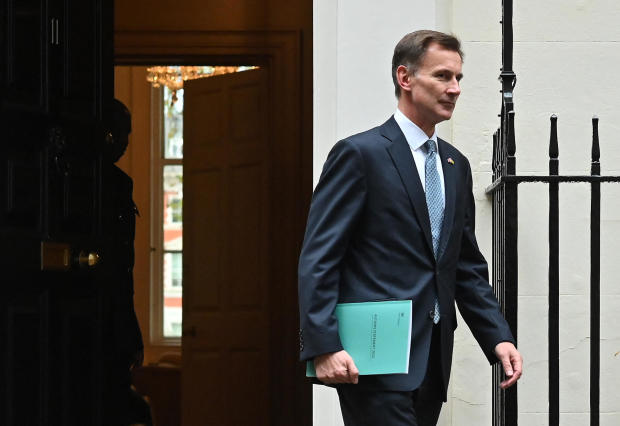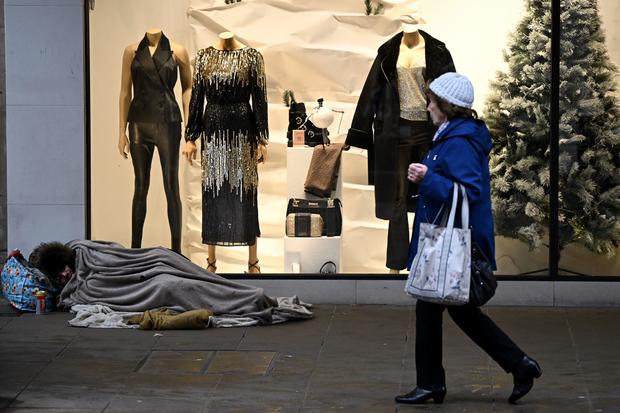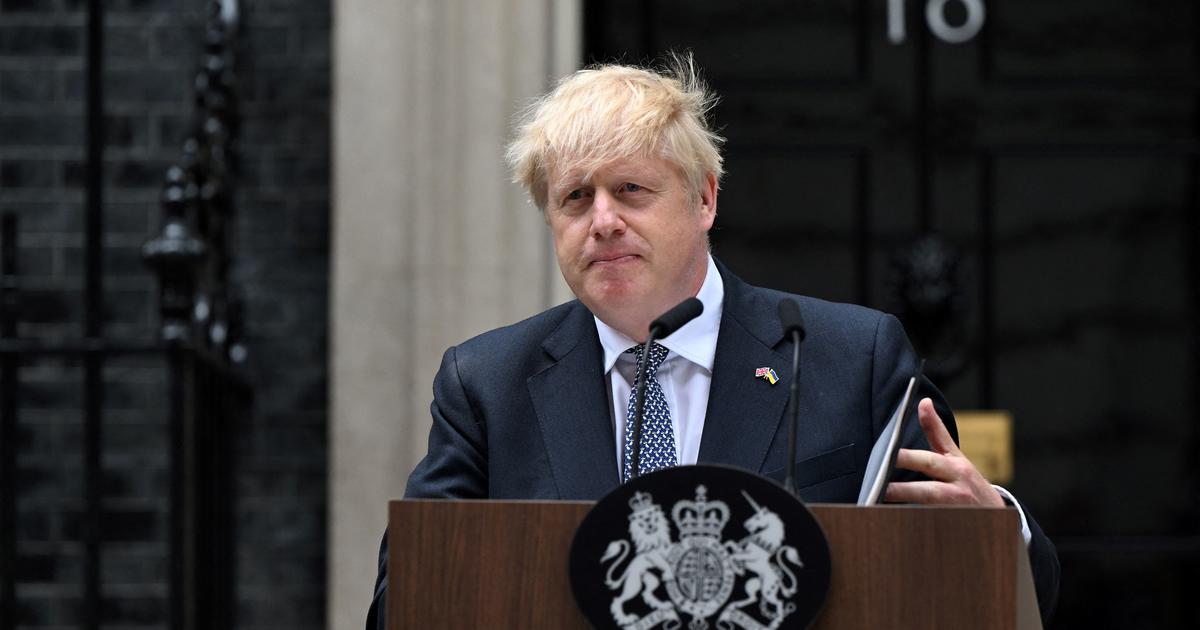U.K. economy in recession for first time since 2008
London — The United Kingdom has slipped into recession, the country's finance minister Jeremy Hunt said Thursday. The last time the U.K. was in recession was during the 2008 financial crisis, which shattered the global economy.
Hunt, the Chancellor of the Exchequer and the second-highest ranking member of Britain's government behind Prime Minister Rishi Sunak, made the anxiety-inducing declaration to lawmakers gathered in the House of Commons to hear his hour-long financial address, called the Autumn Statement.
In it, he outlined the state of the world's fifth-largest economy, which has been battered by soaring inflation and energy prices. The economic woes are due in large part to the war in Ukraine and supply chain disruptions lingering from the COVID-19 pandemic, but also a self-inflicted wound by the previous prime minister and her top economist, whose plan to slash taxes sent shockwaves through financial markets.
At the heart of Hunt's proposals is a painful mix of tax increases and public spending cuts, aimed at filling what economists have described as a "massive black hole" in the government's finances — a gap of about $64 billion.
"There is a global energy crisis, a global inflation crisis and a global economic crisis. But today with this plan for stability, growth and public services, we will face into the storm," said Hunt. "We do so today with British resilience and British compassion."
As the finance minister spoke, the value of U.K. stocks fell to their lowest point of the day, but recouped losses to close flat by the end of trading in London. The British pound, however, fell about 1% to trade at 1.17 to the U.S. dollar. That fall came despite the government having telegraphed its plans before the chancellor's televised address, in the hope that the news would not spook investors.
In taxation, the threshold to trigger payment of the top income tax rate, 45%, will fall from £150,000 to just over £125,000 per year. That and other thresholds were to be frozen for two years, which means that as people make more money — wages are up 5.5% year on year, though not keeping up with inflation at 11.1% — millions of people will eventually be pushed into higher tax brackets.
Hunt said the government would maintain a cap on energy prices introduced by his predecessor Liz Truss, but would raise that cap slightly from next April. Oil and gas companies will also be forced to pay a higher tax, known as a windfall tax, on their profits, which have soared thanks to the soaring oil and gas prices, through 2028.
"The overall result, therefore, is that fiscal policy will be tightened materially next year, amplifying the recession already underway," Samuel Tombs, Chief U.K. Economist at Pantheon Macroeconomics, said in an analysis.
Hunt claimed that his plan would mean "a shallower downturn" for the U.K., and "lower energy bills."






